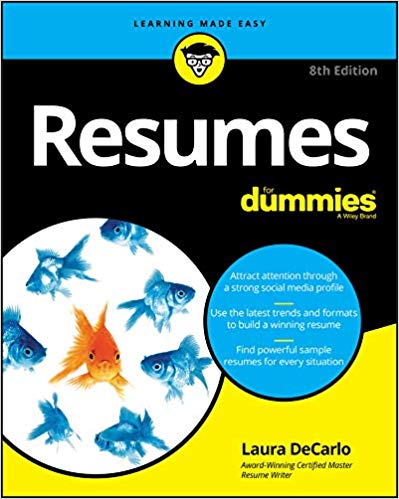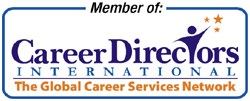Association Career Services: Beyond the Job Board
By Phaedra Brotherton

More and more, professionals are turning to the membership societies that serve them for career navigation in their professions. For associations, the opportunity to serve the career-minded are plentiful, and job boards are just the start. Here's how two associations have developed robust career-services operations.
When one thinks of association career services, what usually comes to mind is the association job board. But, for a growing number of associations committed to meeting their members' career-management needs, the job board is just the start. Below are examples of how two associations are serving their members with an array of comprehensive career services.
American College of Healthcare Executives
Mike Broscio, CMF, director for the American College of Healthcare Executives, says his three-person department's primary goal is to "support members in strategically planning and managing their careers."
At ACHE, the career services team, as part of the professional development department, offers several tools and assessments to help ACHE's 40,000 executive members develop as leaders, network, make career moves, and stay current with the latest career strategies through relationships with executive recruiters, academic institutions, and other industry partners.
"Even if they don't get a job, they will have access to resume counseling, training, one-on-one mentorship, and guidance throughout their career". ~Richard Spector, PRSA
ACHE also offers an online job board and an in-person employment referral service as part of its four-day career center at its annual meeting, where jobs are listed and employers are onsite to conduct interviews. Also, member volunteers—who have gone through special training from ACHE staff—provide a popular resume review and career advising service during the conference, which is often booked well in advance. ACHE also coordinates a mentoring network made up of more than 1,000 volunteers.
A recently added service is the interactive CareerEDGE tool, which members can use to plan their career paths by identifying their skills gaps, creating development plans, connecting with resources to close skills gaps, and even finding coaches or mentors to help them in their efforts.
ACHE's career services are considered a valuable benefit for members. Broscio notes that many professionals only have access to career services when they're graduating or possibly after they've been laid off and don't know where to turn for career help. He believes that the free and low-cost career services that ACHE provides members are critical to members' ongoing career management. "Associations can fill that need to support professionals throughout their entire career," he says.
Public Relations Society of America
Richard Spector, director of corporate development and industry partnerships for the Public Relations Society of America, says the PRSA Job Center serves as a PR and communications "staffing solutions provider" for employers. Meanwhile, all levels of PR and communications professionals can find career guidance and support through special career webinars, job search resources, one-on-one mentorship and advice, and career-management resources.
The job center, which Spector oversees with his colleague John Kesaris, coordinator of corporate development and industry partnerships, serves as a "hub" for PRSA's various professional development offerings and also links to resources offered through its content partnerships with executive recruiters, leading PR agencies, and Graduate Program Partners. PRSA members also have access to one-on-one strategic advice and mentoring services provided by experienced members through PRSA's Mentor Match program. The career center also links to information on the Accreditation in Public Relations (APR) credential.
New career programs for PRSA include its "Moving Veterans Forward Program," a military transition program that provides complimentary membership to those who qualify as well as resume and career support to veterans transitioning to civilian PR positions. Another project in progress is the creation of resume templates to help members write resumes that reflect the convergence of marketing and PR skills that professionals need to be a top candidate in today's integrated profession.
With more than 70,000 page views, Spector says that the job center—which is supported throughout the association—is considered one of PRSA's key member benefits. Although PRSA hopes job seekers land a job through the job board, he wants members to also see PRSA as more of a "full-service career resource." He adds, "Even if they don't get a job, they will have access to resume counseling, training, one-on-one mentorship, and guidance throughout their PR career."
For those looking to expand or add career services, Broscio suggests getting a clear sense on what your member needs are, as in today's marketplace, one size does not fit all when it comes to career services, he says. Then, develop services that you have the resources to actually deliver. "Keep them relevant and embrace technology to enable the organization to reach more members successfully," he says.
For associations looking to add more job-board revenue, Spector suggests using search engine optimization, analyzing how people are coming to your board, and posting jobs on your home page as well as on the job board to increase traffic.
When it comes to career services, executive buy-in and support throughout the association, as well as realistic revenue goals, are critical, notes Carrie McIntyre, senior director of business development at Boxwood Career Solutions (a Naylor Company). Finally, it's important to remember that career services beyond the job board can pay off for an association in many other ways, she says.
"Certainly," McIntyre says, "there are opportunities to increase membership—most associations have more nonmember job seekers using their site than members—engage members and provide a very tangible, loyalty-enforcing service, and generate revenue from the fees employers pay to post jobs."
Phaedra Brotherton, CPRW, JCTC, CDF, is principal of Resumes and Career Strategies, and the former Career Development Community of Practice manager for the Association for Talent Development (ATD, formerly ASTD).
This article originally appeared on asaecenter.org. Reprinted with permission. Copyright ASAE: The Center for Association Leadership (March 2016), Washington, DC.
If you're interested in getting some personalized feedback on career service associations, please feel free to contact Phaedra at info@resumesandcareerstrategies.com to learn about her complimentary, no-obligation consultation.




